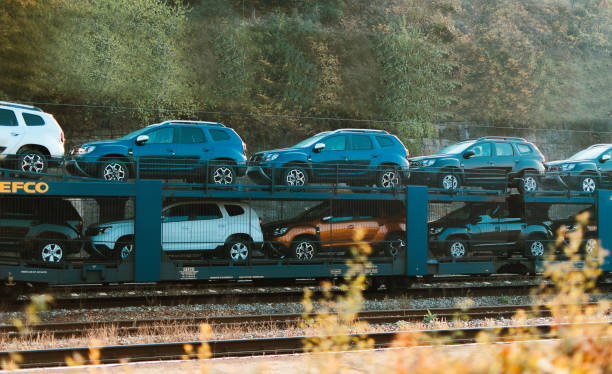Cross-Country Car Shipping vs. Driving: Which is Better?
When it comes to relocating or transporting your vehicle across the country, you often face a crucial decision: should you drive the car yourself or opt for cross-country car shipping? Each option has its benefits and drawbacks, and the right choice depends on various factors, including your budget, time constraints, and personal preferences. In this article, we will explore the advantages and disadvantages of both driving and shipping your vehicle, helping you make an informed decision for your long-distance car transport needs.
The Case for Cross-Country Car Shipping
Cross-country car shipping involves hiring a professional auto transport company to move your vehicle from one location to another. Here are some key benefits of choosing this option:
1. Convenience
One of the most significant advantages of shipping your car is convenience. You don’t have to worry about planning a long road trip, which can be time-consuming and stressful. Instead, you can simply schedule a pickup and let the transport company handle the logistics, allowing you to focus on other aspects of your move or travel plans.
2. Time-Saving
Driving a vehicle across the country can take several days, depending on the distance and your travel speed. This time commitment can be challenging for those with busy schedules. In contrast, shipping your car can be a quicker option, as many transport companies can deliver your vehicle within a week or less, depending on the distance and route.
3. Reduced Wear and Tear
Long-distance driving can take a toll on your vehicle, leading to increased wear and tear. Shipping your car instead allows you to preserve its condition, avoiding potential issues like engine strain, tire wear, and mileage accumulation.
4. Safety and Security
Driving long distances can expose you to various risks, including adverse weather conditions, road hazards, and potential accidents. With professional auto transport, your vehicle is loaded onto a truck and securely transported, minimizing the risk of damage. Many companies also offer insurance options for added peace of mind.
5. Cost-Effective for Long Distances
While shipping may initially seem more expensive than driving, it can be cost-effective in the long run. When considering gas, food, lodging, and potential wear and tear on your vehicle, the costs can add up quickly when driving. Additionally, some transport companies offer competitive rates for cross-country shipping, making it a viable option for those on a budget.
The Case for Driving Your Vehicle
While cross-country car shipping has its benefits, driving your vehicle across the country can also be an attractive option for many. Here are some advantages of choosing to drive:
1. Personal Control
Driving your vehicle allows you complete control over your journey. You can choose your route, make stops as needed, and take your time. This flexibility can be particularly appealing for those who enjoy road trips or want to explore new places along the way.
2. Familiarity with Your Vehicle
If you’re driving your own car, you know its quirks and handling, which can provide peace of mind during a long journey. Some people feel more comfortable driving their vehicle rather than relying on an unknown transport company.
3. No Waiting for Pickup or Delivery
With driving, you can set off on your own schedule without waiting for a transport truck to pick up your vehicle. This can be especially convenient if you have specific timelines for your move or travel plans.
4. Potential for Adventure
Driving across the country can be an adventure in itself. Many people enjoy the experience of a road trip, taking in scenic views, stopping at interesting locations, and making memories along the way.
Considerations When Making Your Decision
When deciding between cross-country car shipping and driving, consider the following factors:
1. Distance
For long distances, shipping may be more practical. However, if you’re only moving a few hundred miles, driving might be more straightforward.
2. Time Constraints
Evaluate how much time you have available. If you need to be in your new location quickly, shipping can save you days of travel time.
3. Budget
Compare the costs associated with both options. Factor in gas, food, lodging, and wear and tear when calculating the total expense of driving.
4. Comfort Level
Consider your comfort with long-distance driving. If you prefer not to spend several days on the road, shipping may be the better choice.
5. Vehicle Condition
If you own a classic or luxury vehicle, shipping it might be safer to avoid potential damage during a long drive. Conversely, if you have an older vehicle that might need repair soon, driving it can give you insights into its condition.
Deciding between cross-country car shipping and driving your vehicle ultimately depends on your unique situation, preferences, and priorities. If convenience, time-saving, and vehicle protection are your primary concerns, cross-country car shipping may be the best choice. On the other hand, if you value control over your journey and enjoy the road trip experience, driving could be more appealing. By carefully weighing the pros and cons of each option, you can make an informed decision that best meets your needs for long-distance car transport. If your car is to be scrapped, look for a company for buying scrap cars.
